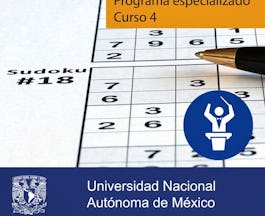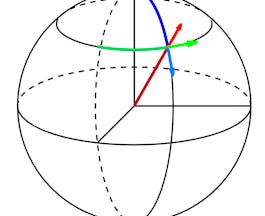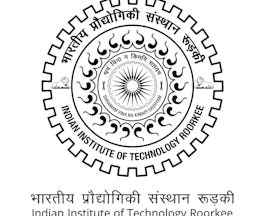Filter by
The language used throughout the course, in both instruction and assessments.
Results for "linear differential equation"

Pontificia Universidad Católica de Chile

Illinois Tech
Skills you'll gain: R Programming

Pontificia Universidad Católica de Chile
Skills you'll gain: Business Analysis, Data Analysis, Leadership and Management, Strategy, Strategy and Operations, Calculus, Communication, Decision Making, Design and Product

Universidad Nacional Autónoma de México
Skills you'll gain: Business Analysis, Communication, Human Resources, Leadership and Management, Operational Analysis, Problem Solving, Strategy, Strategy and Operations, Critical Thinking, Leadership Development

The Hong Kong University of Science and Technology
Skills you'll gain: Calculus, Linear Algebra, Mathematical Theory & Analysis, Mathematics, Differential Equations, Algebra, Critical Thinking, Geometry, Continuous Integration
 Status: Free
Status: FreeIIT Roorkee
Skills you'll gain: Data Science, Linear Algebra, Machine Learning, Mathematics

Johns Hopkins University
Skills you'll gain: Calculus, Mathematics, Differential Equations, Algebra

Georgia Institute of Technology

Johns Hopkins University
Skills you'll gain: Calculus, Mathematics, Differential Equations

Johns Hopkins University
Skills you'll gain: Algebra, Calculus, Mathematics, Critical Thinking, Problem Solving, Mathematical Theory & Analysis, Plot (Graphics), Applied Mathematics, Graph Theory

Korea Advanced Institute of Science and Technology(KAIST)
Skills you'll gain: Algebra, Linear Algebra

Howard University
Skills you'll gain: Mathematics
In summary, here are 10 of our most popular linear differential equation courses
- Cómo entrenar a tus electrones 2: Diodos y Transistores: Pontificia Universidad Católica de Chile
- Linear Regression: Illinois Tech
- Circuitos con SPICE: Fundamentos de los circuitos eléctricos: Pontificia Universidad Católica de Chile
- Solución de problemas y toma de decisiones: Universidad Nacional Autónoma de México
- Vector Calculus for Engineers: The Hong Kong University of Science and Technology
- Linear Algebra Basics: IIT Roorkee
- Calculus through Data & Modeling: Differentiation Rules: Johns Hopkins University
- Linear Circuits 1: DC Analysis: Georgia Institute of Technology
- Calculus through Data & Modeling: Applying Differentiation: Johns Hopkins University
- Precalculus: Relations and Functions: Johns Hopkins University










